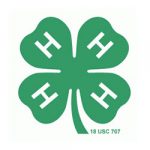Ways to Participate in 4-H
Join a 4-H Club

Members of an organized group of youth, led by an adult, with a planned program that is carried on throughout all or most of the year. 4-H clubs may meet in any location and typically have elected officers and a set of rules approved by the membership to govern the club. Standard 4-H clubs involve youth ages 9-18 and focus on in-depth learning of one or more projects. 4-H Cloverbud clubs provide youth ages 5-8 with an introduction to 4-H in a non-competitive environment. Clubs may meet in the community, on military installations, or in after-school programs.
Click here to learn more about our 15+ 4-H Clubs in Cumberland County
Pursue 4-H Independent Membership
Planned learning, which occurs independent of a formal group setting such as a club, as an individual, paired, or family learning effort. Activities are self-directed, usually with limited adult involvement except for parents (or mentor). Independent members are expected to complete specific requirements (visit the Independent 4-H’ers page for more information) and are encouraged to participate in county, state, and national events.
Try 4-H Special Interest or Short Term Programs
Groups of youth meet for a specific learning experience that involves direct teaching by UMaine Extension staff or trained volunteers. The program is not part of the school curriculum and not restricted to members of 4-H clubs. Examples might be a three-week babysitting course or a program such as Kids Can Grow that is offered in conjunction with our Master Gardener program.
- Visit the Short-Term 4-H Summer Special Interest Programs (SPIN) page for more information.
Experience 4-H School & Community Enrichment Programs
Groups of youth engage in learning experiences in cooperation with school staff during school hours, to support the school curriculum. Other options include working with libraries and other community organizations to offer programming. It can involvedirect teaching by Extension staff or trained volunteers, including teachers. An example might be a volunteer visiting a school to present a special program on science to youth during classroom hours and promoting 4-H while doing so.
- Visit the How Can I Participate in 4-H? – School page for more information.
Participate in 4-H Afterschool
Educational programs outside of school hours, usually in a school or other community center, and incorporating 4-H curriculam. The primary purpose is to engage afterschool staff and youth in hands-on, experiential learning.
- Visit the How Can I Participate in 4-H? – Afterschool page for more information.
Attend 4-H Camps and Learning Centers
There are three outdoor camp and learning sites, all offering year-round Extension-led programs for youth, schools, and families. Blueberry Cove, located along the seashore, Bryant Pond, located in the western Maine mountains, and Tanglewood, located deep in the coastal woods. All three sites connect youth to the outdoors through fun, hands-on and educational experiences.
- Visit the How Can I Participate in 4-H? – Camps page for more information.
In the Summer:
June-August: Programs include traditional overnight camps, day camps, adventure trips, and teen leadership programs.
- Day camping consists of multiple-day programs, with youth returning home each evening.
- Overnight camping includes being away from home at least one night (resident, primitive, or travel camping). Overnight campers spend days swimming, hiking, practicing wilderness skills, archery, art and drama, exploring ponds, rivers and the ocean, organic gardening, and eating delicious home-cooked meals.
- Adventure Trips increase campers’ confidence in the outdoors as they learn practical camping skills while exploring Maine’s beautiful woods and waterways.
- Teen Leadership programs include multi-day canoe and backpacking trips in Maine, which build conscious young adults, through teamwork, problem solving, and community stewardship. All summer programs are open to individuals from Maine and beyond, and do not require prior 4-H membership.
During the Academic Year:
September through May: The Lakeside Classroom at Bryant Pond and the Learning Center at Tanglewood work with schools from across the state through ecological education, service-learning, STEM, group building and other Standards-based curricula. For one to five-day programs, students work with trained staff and teachers to expand on what is learned at school, emphasizing hands-on components and real-time observations of living systems. Year-round program staff also teach programs in after-school settings, for homeschool groups, retreats, clubs and in other outreach capacities.
